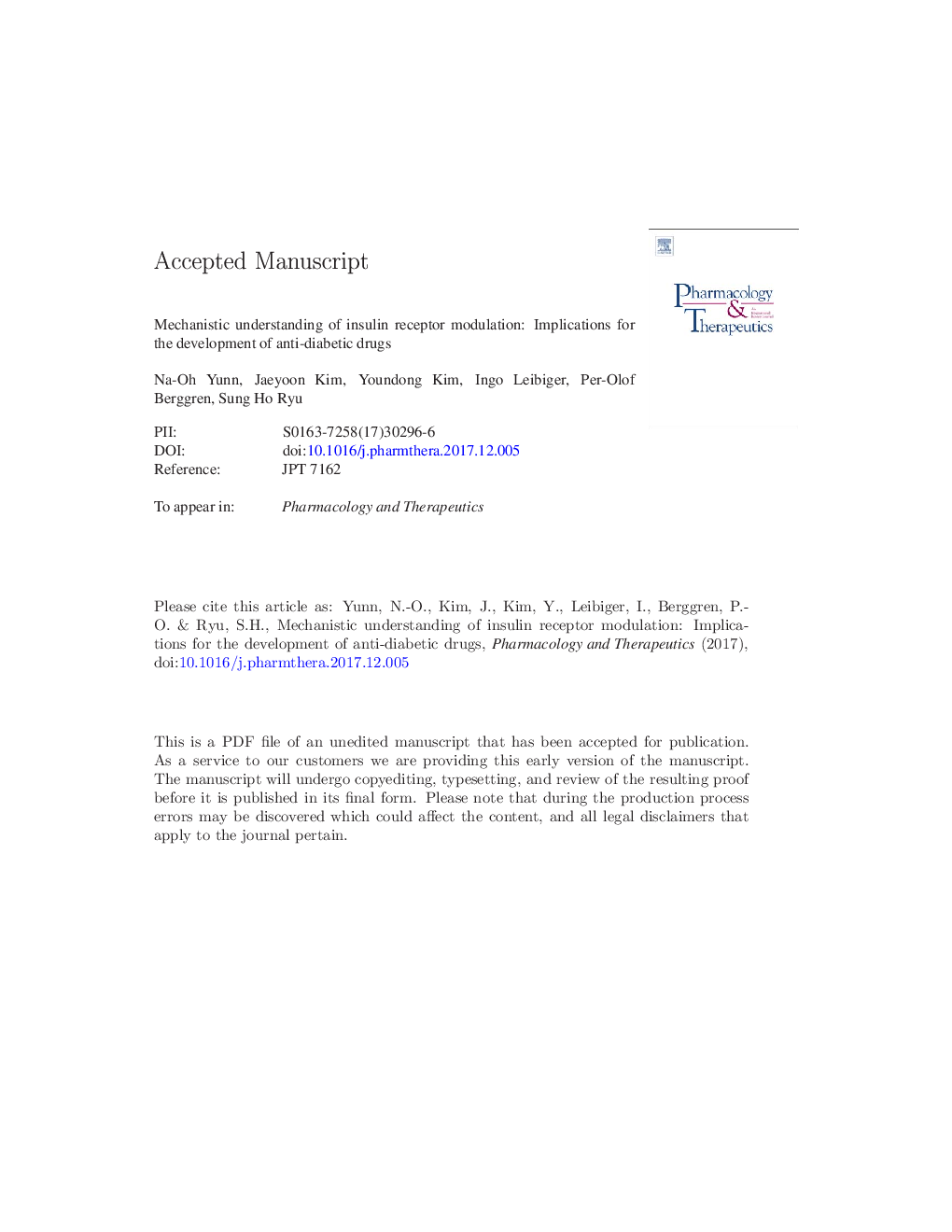| Article ID | Journal | Published Year | Pages | File Type |
|---|---|---|---|---|
| 8536847 | Pharmacology & Therapeutics | 2018 | 40 Pages |
Abstract
The insulin receptor is an important regulator of metabolic processes in the body, and in particular of glucose homeostasis, including glucose uptake into peripheral tissues. Thus, insulin administration is an effective treatment for diabetes, which is characterized by chronic elevation of blood glucose. However, insulin is not only a metabolic regulator, but also functions as a growth hormone. Accordingly, studies of long-term insulin administration and of the hyperinsulinemia associated with type 2 diabetes have raised concerns about possible increases in the risks of cancer and atherosclerosis, due to excessive stimulation of cell proliferation. Interestingly, some insulin receptor ligands that have been developed based on a peptide, an antibody, and an aptamer selectively have metabolic effects exerted through the insulin receptor but do not cause significant cellular proliferation. Although these ligands therefore have potential as anti-diabetic drugs for advanced diabetes care, the mechanism whereby they specifically activate the insulin receptor is still unclear. Recently, studies of the structure of the insulin receptor have progressed considerably, and have provided further mechanistic understanding of insulin receptor activation. Based on this progress, we propose a mechanistic model of this specificity and discuss the potential for the development of novel anti-diabetic drugs that would not have the adverse effects caused by excessive mitogenic action.
Related Topics
Health Sciences
Pharmacology, Toxicology and Pharmaceutical Science
Pharmacology
Authors
Na-Oh Yunn, Jaeyoon Kim, Youndong Kim, Ingo Leibiger, Per-Olof Berggren, Sung Ho Ryu,
